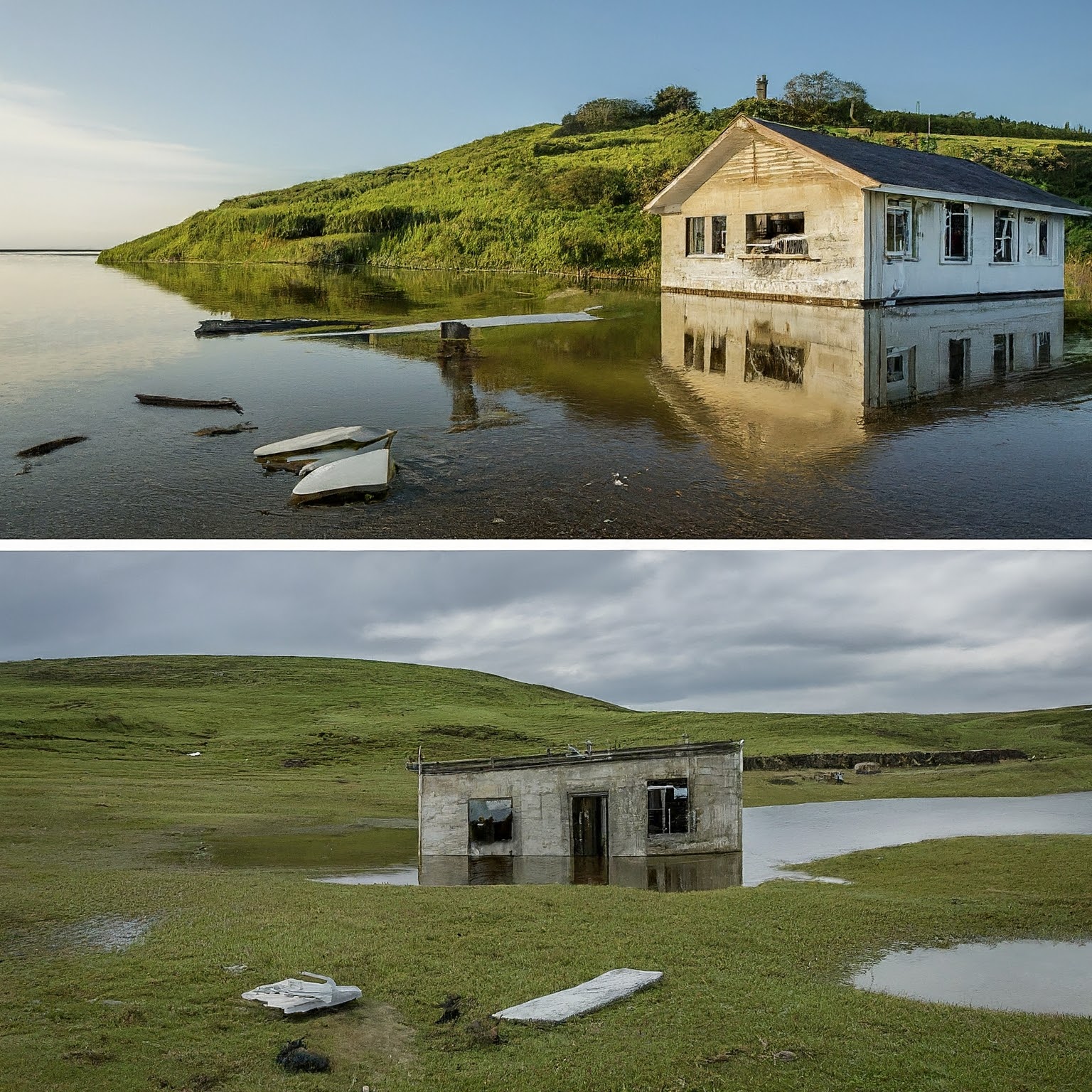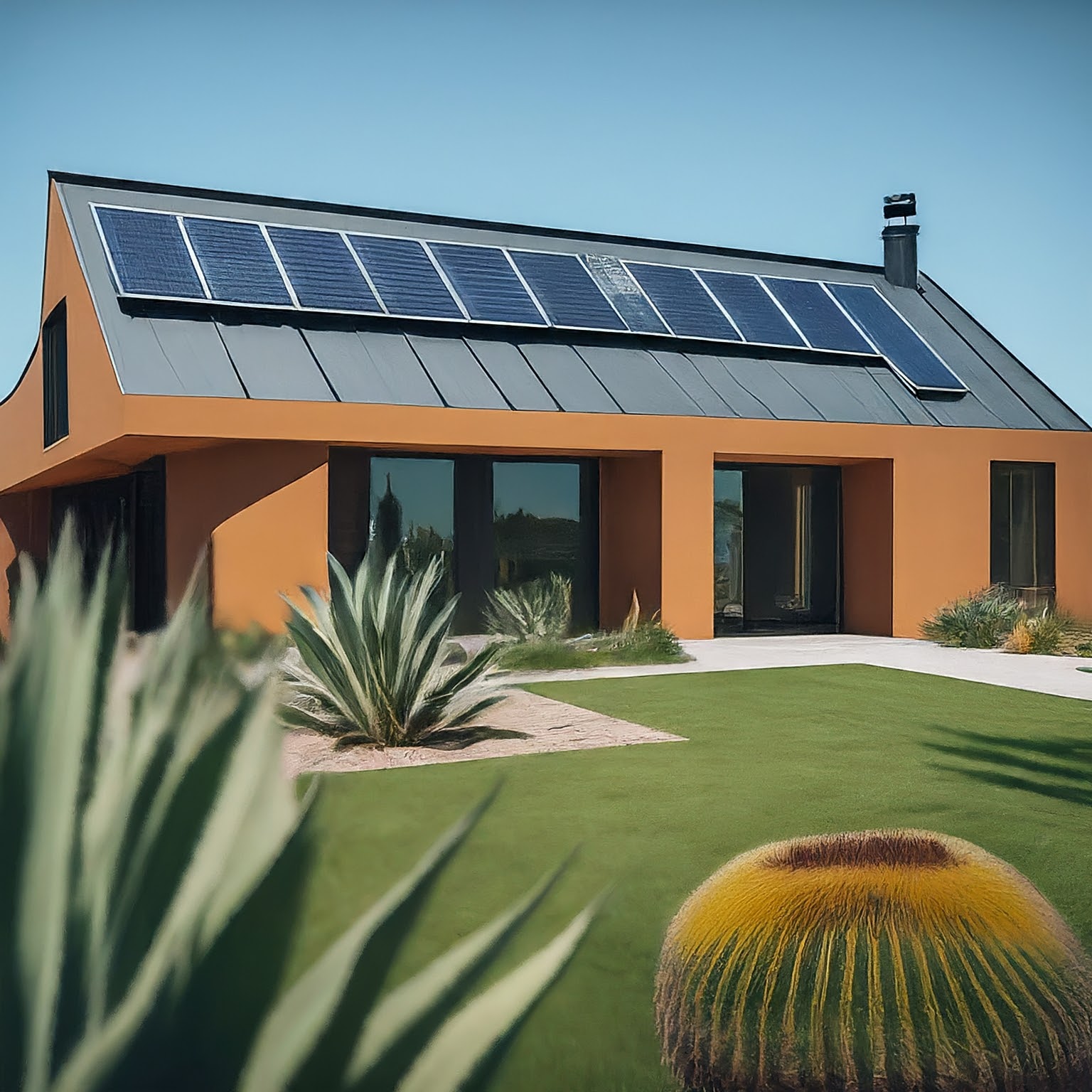Meet Greg, the Green Realtor: A seasoned realtor with over 15 years of experience, Greg has a unique perspective on the housing market. An environmentalist at heart, Greg has witnessed firsthand the growing influence of environmental concerns on real estate. His passion lies in empowering homeowners and investors with knowledge about climate change’s impact on property values, enabling them to make informed choices for a sustainable future.
The Looming Threat: Climate Change and Real Estate
Climate change is no longer a looming threat on the horizon; it’s here. Rising sea levels, increasingly frequent and intense extreme weather events, and environmental degradation are already impacting communities around the world. These factors significantly influence the real estate landscape, posing risks to some properties while creating opportunities for others.
Environmental Impact on Housing Markets – A Growing Trend
A 2023 study published in the peer-reviewed journal Nature Climate Change highlights the potential cost of unrealized flood risk in the American real estate market, estimating that flood zone property prices could be inflated by hundreds of billions of dollars. This trend isn’t limited to floods; a report by Realtor.com® indicates that nearly half of all U.S. homes face potential damage from various climate change-related threats, translating to roughly $22 trillion in at-risk residential property value.

Winners and Losers: How Climate Change Affects Property Value
As the impacts of climate change become more prominent, some property types will undoubtedly be more susceptible than others. Let’s explore potential winners and losers in this evolving market.
Potential Winners:
- Properties on Higher Ground: Homes situated in areas with lower flood risk or a reduced likelihood of wildfires may see a rise in value as they become more desirable. With rising sea levels and an increase in severe weather events, these locations offer a sense of security and stability.
- Energy-Efficient Homes: In a world increasingly focused on sustainability, properties with features like solar panels or energy-efficient appliances are likely to hold greater appeal for environmentally conscious buyers. These features not only reduce environmental impact but also translate to lower utility bills, a significant advantage for homeowners.
- Water-Wise Landscaping: With water scarcity becoming a growing concern in many regions, homes with drought-resistant landscaping and efficient water usage systems might become more attractive to potential buyers. Sustainable landscaping practices not only conserve water but also require less maintenance, saving homeowners time and money.
Potential Losers:
- Coastal Properties: Rising sea levels and storm surges pose a significant threat to coastal properties. This can lead to decreased value and increased insurance costs, making these locations a riskier investment.
- Fire-Prone Areas: Homes located in regions with a high risk of wildfires may experience declining value due to safety concerns and the potential for property damage. The increasing frequency and intensity of wildfires are making these areas less desirable for many buyers.
- Properties with Inefficient Infrastructure: Homes with outdated plumbing or electrical systems that require frequent upgrades due to extreme weather events could see lower valuations. The rising costs of repairs and replacements associated with outdated infrastructure can significantly impact a property’s value.
Climate Change Impact on Property Values
| Feature | Potential Impact on Value |
|---|---|
| Location (Flood risk, wildfire risk) | High risk areas – Decrease; Low risk areas – Increase |
| Energy Efficiency | Sustainable features – Increase |
| Water Efficiency | Drought-resistant landscaping – Increase |
| Infrastructure | Outdated systems – Decrease |
Remember, this is a simplified overview. A property’s vulnerability depends on various factors, including its specific location, construction materials, and local regulations.

Future-Proofing Your Investment: Strategies for Homeowners and Investors
With the knowledge of how climate change can impact property values, homeowners and investors can take proactive steps to safeguard their investments. Here are some key strategies to consider:
- Location, Location, Location: The old adage holds even more weight in a changing climate. Prioritize properties in areas less susceptible to climate change-related risks. Conduct thorough research, including consulting flood maps and wildfire risk assessments, before making a purchase decision.
- Invest in Sustainability: Consider upgrades that improve your home’s energy and water efficiency. These improvements not only reduce your environmental impact but also lower your long-term utility costs and increase your home’s appeal to environmentally conscious buyers.
- Mitigate Risks: Explore options like flood insurance or fire-resistant roofing to safeguard your investment. While these measures involve upfront costs, they can provide significant financial protection in the event of a disaster.
- Stay Informed: Knowledge is power. Stay updated on climate change projections for your region and local policies related to development and sustainability. This information can help you anticipate potential risks and make informed decisions about your property.
- Resources like the National Oceanic and Atmospheric Administration (NOAA) and the Environmental Protection Agency (EPA) offer valuable data and resources on climate change and its impacts.
- Local government websites and environmental organizations can provide insights into specific regional threats and initiatives.
Collaboration for a Sustainable Future: Environmentalists and the Real Estate Market
Environmentalists play a vital role in advocating for sustainable development practices within the real estate industry. Here’s how collaboration can create positive change:
- Policy Advocacy: Environmental groups can lobby for policies that encourage climate-resilient construction and infrastructure development. This can involve stricter building codes, promoting the use of sustainable materials, and investing in renewable energy sources.
- Community Education: Raising awareness about the impact of climate change on real estate can empower communities to make informed decisions. Environmental organizations can partner with realtors and local governments to educate residents about climate risks and sustainable building practices.
- Green Certifications: Promoting green building certifications like LEED (Leadership in Energy and Environmental Design) can incentivize developers to construct environmentally friendly buildings. These certifications recognize properties that meet rigorous sustainability standards, making them more attractive to environmentally conscious buyers.
Conclusion: Building a Sustainable Future
Climate change presents a significant challenge to the real estate market, but it also presents an opportunity for innovation and collaboration. By understanding the risks and opportunities, homeowners, real estate investors, and environmentalists can work together to build a more sustainable and resilient future for our communities.
Taking Action Today for a Sustainable Tomorrow
The decisions we make today regarding our homes and investments will have a lasting impact. By prioritizing sustainability and understanding climate risks, we can safeguard our property values and contribute to a greener future for the real estate industry. Here are some concluding thoughts:
- Homeowners: Invest in energy and water efficiency upgrades. Consider planting drought-resistant landscaping and explore renewable energy options like solar panels.
- Real Estate Investors: Seek out properties in low-risk areas and prioritize sustainable features when developing or renovating buildings.
- Environmentalists: Advocate for sustainable development policies, educate communities, and promote green building certifications.
Working together, we can create a real estate market that is not only responsive to climate change but also contributes to a healthier planet for generations to come.
Remember, informed decisions today will safeguard your property value and pave the way for a more sustainable real estate landscape.



